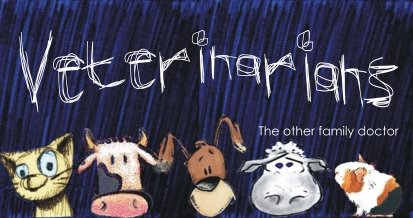
I read about this disturbing story a few days ago in the news:
____________________________________________________________________
TV star chimp shot dead by police after woman was badly mauled
Published Date: 18 February 2009
A 14-STONE chimpanzee who once starred in US television commercials was shot dead by police after a violent rampage that left a friend of his owner badly mauled.
Travis, who was 15 years old and domesticated, inexplicably attacked Charla Nash, 55, when she turned up at the home of the animal's owner, Sandra Herold.
Ms Nash had gone to the house in Stamford, Connecticut, on Monday to coax the chimp back into the house after she escaped.After the animal lunged at Ms Nash when she got out of her car, Ms Herold ran inside to call the police. "She retrieved a large butcher knife and stabbed her pet numerous times in an effort to save her friend, who was really being brutally attacked," Richard Conklin, of Stamford police, said.
After the initial attack, Travis ran away and started roaming Ms Herold's property. Police then arrived and set up a security cordon so medics could reach the critically injured woman.
But the chimp returned and went after several of the officers, who retreated into their cars. Travis knocked the mirror off a cruiser, before opening its door and starting to get in, trapping the officer.
That officer shot the chimp several times, Mr Conklin said.
The wounded chimp fled the scene, but police were able to follow the trail of his blood: down the drive, into the open door of the home, through the house and to his living quarters, where he had retreated and died of his wounds.
Ms Herold and two officers suffered minor injuries.
Ms Nash is in a critical condition after suffering what the town's mayor, Dannel Malloy, called "life-changing, if not life-threatening" injuries to her face and hands.
Her sister-in-law, Kate Nash, said yesterday that she underwent surgery on Monday night and came out of it "OK".
Mr Conklin said police didn't know what had triggered the attack. "There was no provocation that we know of. One thing that we're looking into is that we understand the chimpanzee has Lyme's disease and has been ill from that, so maybe from the medications he was out of sorts. We really don't know," he said.
He said Travis had been acting so agitated earlier that afternoon that Ms Herold had given him the anti-anxiety drug Xanax in some tea, which doctors say can stimulate aggression in unstable people.
Mr Conklin also suggested the animal might have attacked Ms Nash because she was wearing her hair differently and perhaps wasn't recognised.
When he was younger, Travis appeared in TV adverts, including one for Coca-Cola, and made an appearance on the Maury Povich Show. The chimp was well known around Stamford because he rode around in trucks belonging to the towing company operated by his owners.
After Travis escaped from their car for two hours in 2003, the Herolds told how he was toilet-trained, dressed himself, took his own bath, ate at the table and drank wine from a stemmed glass. He also brushed his teeth, logged on to a computer to look at pictures and watched television using the remote control.
Colleen McCann, a primatologist at New York's Bronx Zoo, said chimps were unpredictable and dangerous, even after living among humans for years.
She said: "It's deceiving to think that if any animal is 'well-behaved' around humans that means there is no risk involved to humans for potential outbursts of behaviour.
"They are unpredictable, and in instances like this, you cannot control that behaviour or prevent it from happening if it is in a private home."
____________________________________________________________________
I feel very sad whenever I come across cases such as this.
Travis was treated as a member of the family. Some domestic pets that I know of, such as cats and dogs, are not even treated like Travis.
Yet he is a wild animal.
It is tragic for the woman who was attacked.
It is tragic for Travis' "owner"...and ultimately...
It is tragic for Travis as he was killed.
In reading the last part of the story, I was most struck by how Travis died in his room. He was simply torn between being a wild animal and being one of the family.
It is my personal opinion that exotic animals should not be kept as pets, no matter how they have been tamed...or at least how one believes they have been tamed.
It is my personal belief that exotic animals belong in the wild, with minimal human interference.
I would love to hear what you have to say.
Do feel free to comment on my blog.




7 comments:
Purdue University Press is releasing a new book, Inside Animal Hoarding, which profiles one of the largest and most intriguing cases of animal hoarding in recent history. Celeste Killeen's investigation pries open the door to Barbara Erickson's hidden and closely guarded life, offering an in-depth view of animal hoarding. Dr. Arnold Arluke's discussion follows the Erickson story with current research on animal hoarding and how it ties into the Erickson case. This integration of investigative journalism and scholarship offers a fresh approach with appeal to a broad audience of readers, those new to learning about the phenomenon, and those with first-hand experience in the animal welfare field.
when you say exotics, I'm reminded of the reason i'm endeavoring to become a veterinarian with specialization in exotics-my four pet rabbits. They're all breeds that have been domesticated for quite some time, but not nearly as long as dogs and cats have been. I was wondering if you meant animals that fall under the blanket term of exotics shouldn't be taken in as family members...?
Rabbits are hardly considered exotic pets, my dear emsisgreat!
Good luck in your endeavors to become an exotic animal veterinarian!
Haha, tell that to their vets, and pacfa and their insurance...which I only have because their bills tend to be above $400 for any procedure that isn't a check-up due to the fact that they are labeled exotic.
I guess what I'm really saying is that there are many animals that are actually labeled "exotic" simply because they have a shorter history of domestication or they have systems that are difficult to learn and treat properly. Other countries and even states have widely varying ideas on what animals are safe, like pitbulls, or ferrets.
Is it the size and nature (carnivores/predators) of the animal that concerns you, or the idea that you don't consider these animals safe to have as pets, though other countries and cultures may beg to differ?
I've seen that many dogs can be as dangerous as Travis, though they are considered domestic and not "exotic".
I'm just interested to know what you mean when you say, "exotic".
Thanks for answering my question.
did you delete that comment...without answering either of them? or did it just not post somehow?
My dear emsisgreat, happy new year and sorry I have been too busy to respond to your comment until now.
When I use the term "exotic pet", I am referring to an unusual animal kept as a pet which is not commonly thought of as a pet. To be considered domesticated, animals must have their behaviour, lifecycle or physiology systemically altered as a result of being under human control for many generations. Animals that do not fully meet this criterion are designated "captive-bred" or "semi-domesticated".
However, you are right that the definition is evolving. Some rodents, reptiles and amphibians are no longer considered exotic. Sometimes any unique/wild-looking pet (such as the ferret and the domestic rat) is called an exotic pet. "Exotic" may also be used for a species that is non-indigenous to the owner's locale.
Exotic species of animals that have been kept as pets include bears, wolves, civet cats, raccoons, alligators, wild felines such as lions, tigers, bobcats, servals and ocelots, arthropods such as scorpions, spiders and praying mantises...and non-human primates.
(to be continued...)
Major pet stores and service providers such as vet insurance carriers or online retailers tend to classify any animal besides dogs, cats, small birds or fish as exotic.
From a legal point of view, the Convention on the International Trade in Endangered Species of Wild Flora and Fauna (CITES) moderates the global trade of exotic pets to prevent threats to their survival. Certain animals may be strictly regulated or restricted due to their conservation status and possibility of becoming an invasive species. In some cases laws are circumvented by breeding the animals in captivity. The US Department of Agriculture (USDA) issues permits for keeping or breeding certain exotic species, whether captured from the wild or bred. In the US, it is illegal to import non-human primates for the pet trade but a flourishing breeding industry exists, using animals descended from those brought in legally before the ban was enacted in 1975. In 2003, the US Captive Wild Animal Safety Act (CWASA) became law and in September 2007, the US Fish and Wildlife Service (FWS) enacted rules to enforce it. The law now bans the sales or transport of big cats including lions, tigers, leopards, jaguars, cougars, snow leopards, clouded leopards, cheetahs and their hybrids across state lines for the pet trade. The American Veterinary Medical Association (AVMA), the US Department of Agriculture (USDA), the National Animal Control Association (NACA), the Association of Zoos & Aquariums (AZA) and the Center of Disease Control (CDC) all discourage private ownership of exotic animals.
An estimated 15,000 non-human primates are kept by private individuals as pets in the US. Nine states ban the keeping of these primates but no federal law regulates ownership. In 1975, the CDC prohibited their import into the US for use as pets. Even endangered species such as cottontop tamarins, baboons, chimpanzees, Diana monkeys, lemurs and gibbons are still available for purchase in the US.
From health aspects, costs of vet treatment of exotic animals may be much higher than for a conventional pet due to increased specialisation. Many animals have zoonotic potential. Some are known to carry diseases that can affect humans (such as salmonellosis and rabies). Similarly, some human diseases can be dangerous for certain animals (such as streptococcal pharyngitis). Some of the most lethal viruses such as the hemorrhagic fevers are spread through contact with exotic pets, resulting in high mortality and disabilities for those who survive. Although breeding populations have been isolated from wild populations, they still have potential to transmit disease. There is a considerable risk of Monkey B virus from rhesus macaques, which many research workers have died from. There is also risk to non-human primates through transmission of human disease. One such example is herpes simplex virus, which can be deadly to certain smaller monkeys.
Many professionals including veterinarians, zoologists and humane societies, strongly discourage the keeping of these primates as pets, as their complex emotional and social needs and other highly specialised requirements are difficult to be met by the average owner.
Exotic animals have not been domesticated and remain wild. Even if they are bred for the pet trade and raised by humans, they may be unpredictable, largely untrainable and dangerous, especially as they mature.
Post a Comment